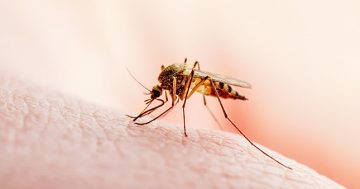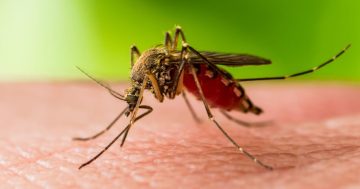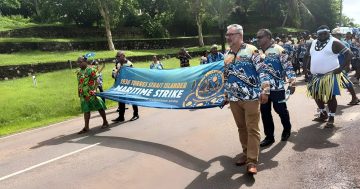
A Boigu Island resident has contracted malaria.
MOSQUITO spraying is underway on Boigu Island on the Torres Strait after a local resident contracted malaria on Australia’s most northern island.
Torres and Cape Hospital and Health Service’s public health medical officer Allison Hempenstall said the case was being managed appropriately and no further details could be provided due to confidentiality.
“The community should be aware that malaria is treatable and there is no cause for community alarm,” Dr Hempenstall said.
“Malaria is a mosquito-borne disease and is not transmitted from person to person. It is spread to people by the bite of particular types of mosquitoes.
“Residents of Boigu Island and the Torres Strait Islands should be on alert for symptoms of malaria and take measures to prevent being bitten by mosquitoes.”
The most common symptoms of malaria are high fever, headache, backache, nausea, vomiting, and muscle and joint pains.
“If anyone exhibits any of these symptoms, they should present immediately to their local primary healthcare centre,” Dr Hempenstall said.
“The very best protection against mosquito-borne diseases of any kind is to avoid being bitten by mosquitoes in the first place.”
Boigu Island is located just 6km from the mainland of Papua New Guinea, where malaria is widespread.
Dr Hempenstall said that even in untreated or incompletely treated people, some malaria parasites may persist and cause recurrent symptoms for years.
“Several effective drugs are available for treating malaria,” she said.
“Early malaria can usually be easily treated whereas late, severe, or complicated malaria can be a life-threatening medical emergency.
“Some types of malaria may re-occur, requiring additional treatment.
“Travellers to regions where malaria is present should always take precautions to avoid mosquito bites, as well as ensure they take anti-malarial drugs, to prevent malaria.”









